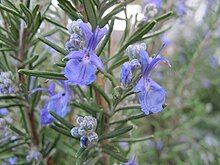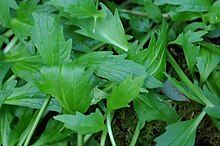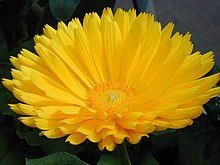User:Cesdeva/sandbox2
- Light blue: #bad4ff
- Peach: #ffdaba
- Light-grey: #dbdbdb
- Mid-grey: #bcbcbc
- Dark-grey: #4444
- Beige: #eae8d0
- Mid-green: #094900
Portal: Herbalism
⊆esdeva (talk) 03:23, 31 January 2019 (UTC)
Herbalism (also herbal medicine or phytotherapy) is the study of botany and use of plants intended for medicinal purposes or for supplementing a diet. ⇒
Selected articles
Lemon Balm
Lemon balm (Melissa officinalis) is a perennial herbaceous plant in the mint family and native to south-central Europe, the Mediterranean Basin, Iran, and Central Asia, but now naturalised elsewhere. ((more))
Officinalis
Officinalis, or officinale, is a Medieval Latin epithet denoting organisms—mainly plants—with uses in medicine, herbalism and cookery. It commonly occurs as a specific epithet, the second term of a two-part botanical name. Officinalis is used to modify masculine and feminine nouns, while officinale is used for neuter nouns. ((more))
Camomile
Chamomile (American English) or camomile (British English; see spelling differences) (/ˈkæməmaɪl, -miːl/ KAM-ə-myle or KAM-ə-meel) is the common name for several daisy-like plants of the family Asteraceae. Two of the species, Matricaria chamomilla and Chamaemelum nobile, are commonly used to make herbal infusions for beverages. There has been limited (though thus far insufficient) research as to whether consuming chamomile in foods or beverages is effective in treating medical conditions. ((more))
Valerian
Valerian (Valeriana officinalis, Caprifoliaceae) is a perennial flowering plant native to Europe and Asia. In the summer when the mature plant may have a height of 1.5 metres (5 feet), it bears sweetly scented pink or white flowers that attract many fly species, especially hoverflies of the genus Eristalis. It is consumed as food by the larvae of some Lepidoptera (butterfly and moth) species, including the grey pug.
Crude extract of valerian root may have sedative and anxiolytic effects, and is commonly sold in dietary supplement capsules to promote sleep, but clinical evidence that it is effective for this purpose is weak or inconclusive. ((more))







